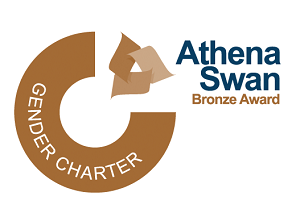External engagement
In recent years RC-SPGS has attracted significant funding for research projects from the ESRC, the British Academy, and the Leverhulme Trust and several staff have served as members of government advisory, UN, NGO and voluntary sector and professional academic bodies.
We take public engagement to be a central aspect of research in all our disciplines. The impact of this is evident at local, national and international levels with an extensive range of groups, including local communities, Third Sector organisations, political parties, the general public, UK, EU and UN political institutions, national governments of other countries, and the Organization for Security and Cooperation in Europe (OSCE). There are two main types of impact: direct work with specific users, such as governments, political parties, voters, environmental activists, war veterans, and local communities, achieved through formal and informal collaborative partnerships and consultancies and contributions to public debate through public engagement, including print and broadcast media.
Direct work with and for specific users: Staff have worked with governments and international organisations, applying their research to inform policy. Important examples of this include Dr Barry Ryan's reports on policing and security for the Montenegrin Ministry of the Interior (funded by the OSCE) and for the Irish government and Professor Robert Ladrech’s consultancy for the EU Parliament on funding for Party Foundations, which led to changes in its policy. As a result of his research on the Indian Ocean Region, Professor Emeritus Tim Doyle was appointed by the Minister for Foreign Affairs in 2013 as one of only four Australians to be an advisor to the Indian and Australian Governments’ Indian Ocean Security Task Force. Professor Emeritus Patrick Thornberry has been a member of the United Nations Committee on the Elimination of Racial Discrimination since 2001, in which capacity he has served regularly as rapporter (independent expert) for numerous reports and forums and been author or co-author of several General Recommendations for the UN.
Contributions to public debate through public engagement: research briefings have been given at the House of Commons by Naveed Sheikh (on Poverty and Islamic Radicalisation) and by Professor Richard Luther (for the special interest group on Austria).
In addition, many staff have given research-based talks in recent years to a wide range of non-academic audiences, such as the Foreign and Commonwealth Office; Indian Council of World Affairs; Commission for Architecture and the Built Environment; Chatham House; Department of Energy and Climate Change.
SPGS also organises events for the local public – including symposia on the US 2008 and UK 2010 elections attended by local schools, and on Turkish protests and the situation in Syria in 2013. This is complemented by SPGS’s support Keele World Affairs, Europe's largest adult education group, which has over 500 current members and attracts high-profile speakers from the world of politics and public affairs (including George Osborne, Baroness Shirley Williams and Lord Winston in recent years).
School of Social Sciences
Chancellor's Building CBA1.039
Keele University
Staffordshire, ST5 5BG
Tel: +44 (0) 1782 734346
Undergraduate and postgraduate enquiries
Tel: +44 (0) 1782 734346
Email: socialsciences.office@keele.ac.uk


